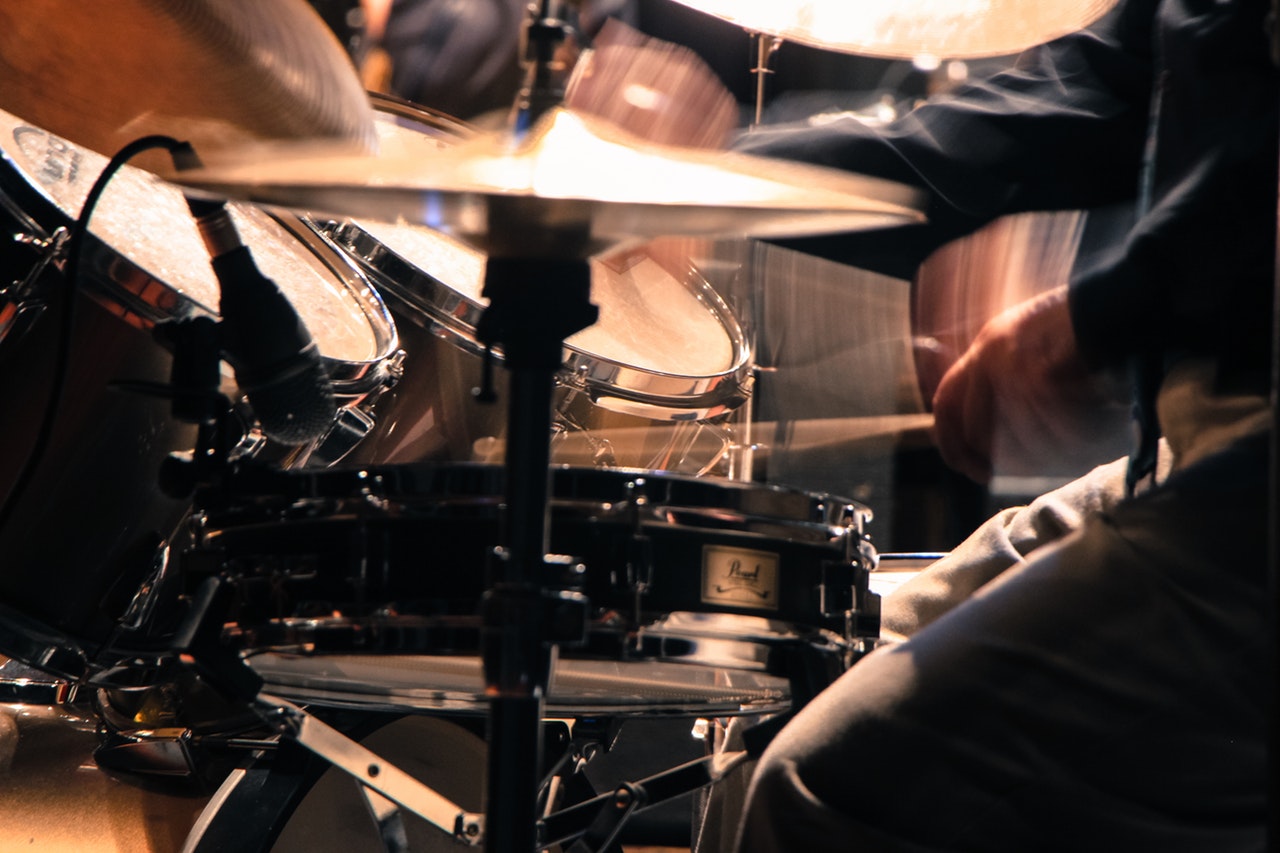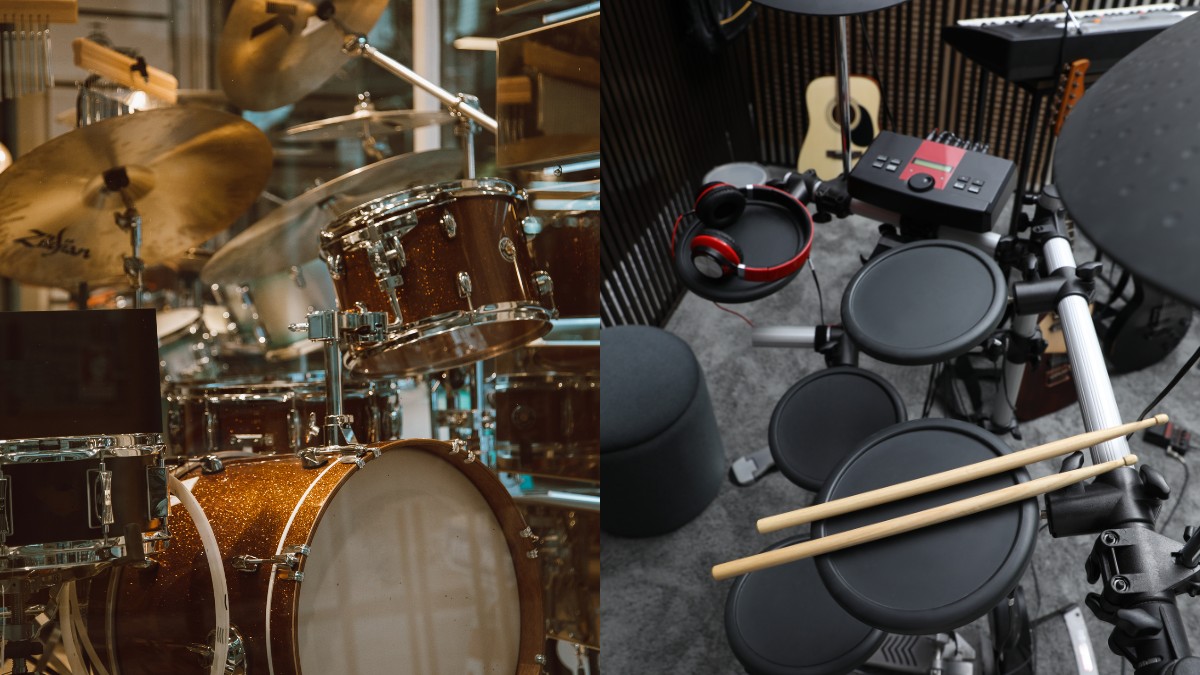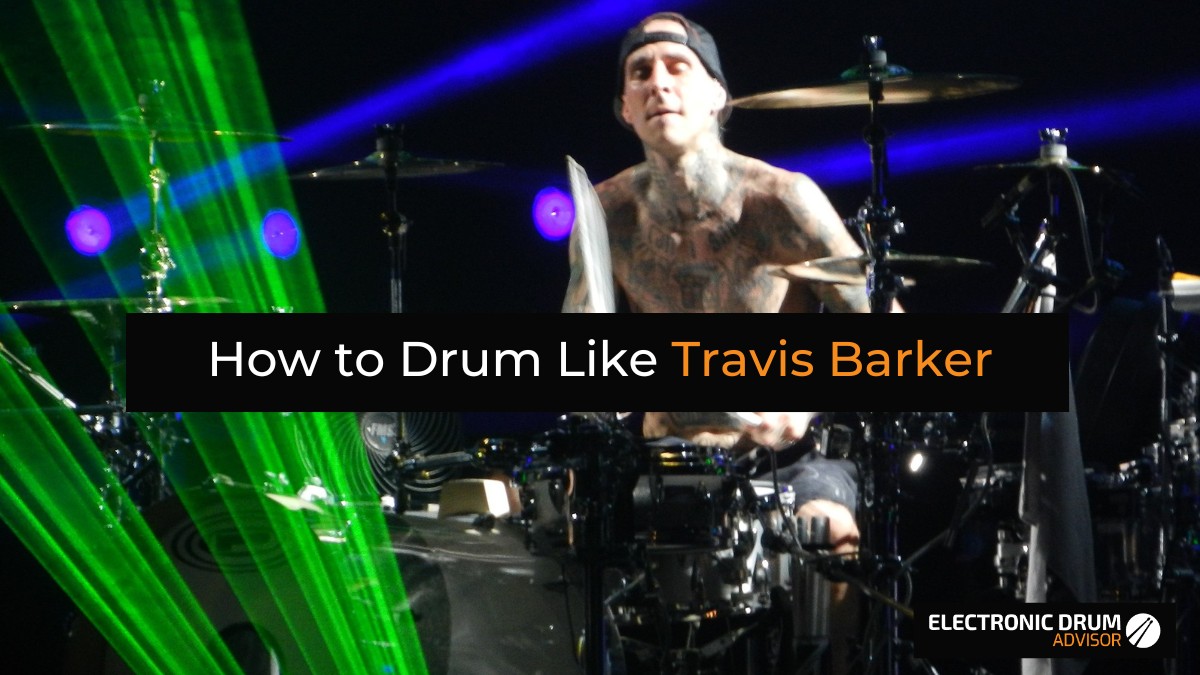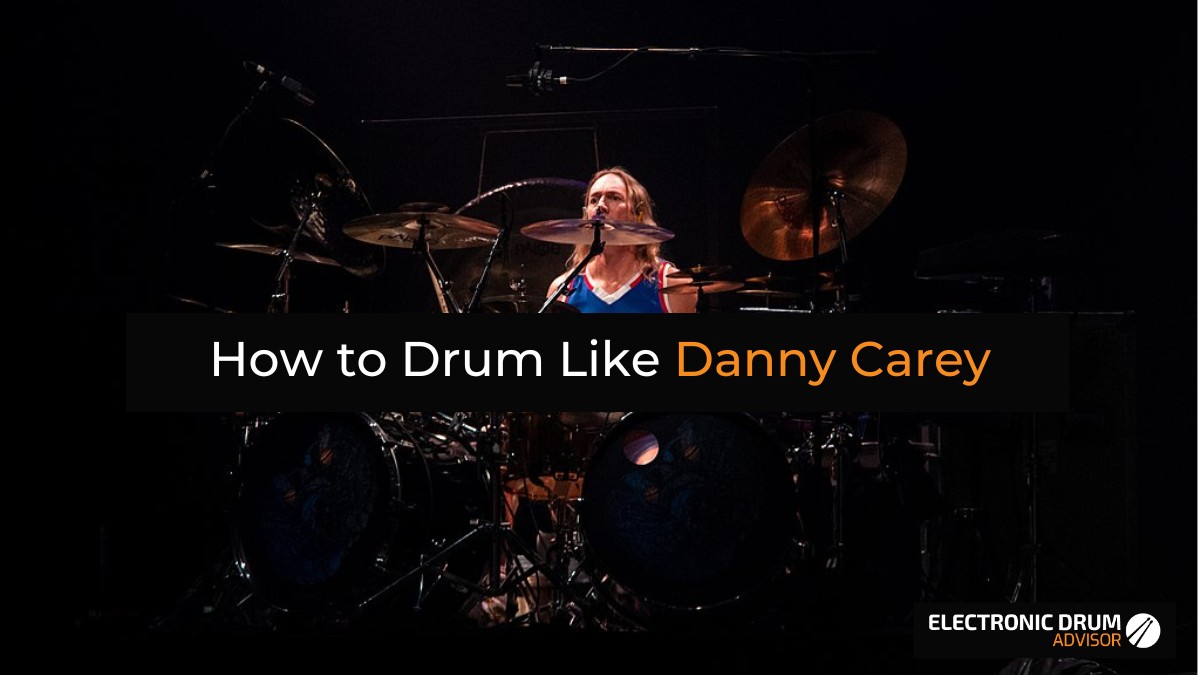How Learning Music Production Can Improve Your Drumming Career

I started producing electronic music as a hobby about 3 years ago. I’ve been playing drums my entire adult life. I was pleasantly surprised at the number of both tangible and subtle benefits that arose from this new past time of mine.
Some of them were directly related to drumming style and technique. Others are related to your taste and how you go about making music. You can also greatly improve how you communicate with other musicians and spread ideas.
I personally got into deep house and EDM music production. However, these transferable skills can apply to many different styles of music.
Some of these skills can also be learned by picking up another musical instrument, such a piano or a guitar. However, I gained a considerable amount more transferrable skills through music production than any other instrument I have learned to play.
So let’s get right into them.
Contents
It gives you more musical context
As a drummer, you are inherently focused on timing and rhythm. You can start to appreciate an entirely different musical context when you step outside of this focus and start arranging music.
Composing and arranging makes you think and appreciate about all of the aspects of the music. This includes how melody, harmony and rhythm interact with each other to make the overall track.
This can make a subtle but powerful difference when you play drums with a band. You can get more of a sense of taste of when to step back and when to go all out!
Of course, some drummers already possess this appreciation from playing other instruments or through very keen observation of their favorite track. However, I still think there is something to be benefited in manner.
More ideas for beats and fills
I hit a wall in my drum progression before I started producing music. I kept rehashing the same drum beats and fills over and over again.
Yes, this may have been down to a lack of discipline. However, the art of music production seriously kicked this into gear.
There are a wealth of drum sample libraries that can give you inspiration on new types of drum beats to use.
Mixing and matching beats within music production software can also free up limitations on what you can do behind the kit.
For example, you are no longer limited by your drum kit sounds. You can process, record, drag and drop as many different types of audio samples you want to get the sound you’re looking for.
This moves me on to my next point.
It can push you into the world of hybrid drums
Hybrid drum kits open up a world of opportunity for drummers. For example, adding a drum or sample pad to your acoustic drum set can instantly provide sampling capability to your live performances.
Drummers that are skilled in music production can also choose and process the exact samples to suit their sound.
There are many presets available on these devices, so a large amount of production knowledge is now essential. However, it extends your options.
Introducing electronic drum and trigger elements to your set also allows you to trigger loops and any other midi device. You could also hook your trigger directly to sound engineer software on your laptop.
It improves your communication
I used to get frustrated being in bands early in my musical career. As a drummer, I didn’t really have the vocabulary of melodic concepts to really contribute in a musical manner whenever I had an opinion.
When learning how to create music, you quickly need to get a grasp of scales and melodies. It’s actually very easy to learn the basics of these when you are playing with midi notes on a computer.
Eventually, after you learn about music theory, you may eventually just decide to trust your ear and work from there. That sort of confidence can go a long way!
It improves your independence as a musician
Drummers are often dependant on other musicians. Singers and other instrumentalists can go solo into a musical career, but this is not often the case for a drummer.
It’s very safe to say that drummers are almost always in demand; even more so than bassists. However, if you produce your own music it’s a great avenue to try out a solo project of your own.
Following on from this
I’ve been discussing some potentially unexpected subjects in this article. Technique and practice are paramount to the improvement of your drumming.
However, once you can perform blisteringly fast double-stroke rolls and paradiddles around your kit. It doesn’t necessarily mean that you have great ‘taste’ when it comes to you personal choice of how drums fit into songs.
Stepping outside of your drum set can actually give you a whole next perspective for when you sit back in.
You might even have a lot of fun along the way!
How to start producing music
If you’re interested in learning how to produce music, I’d highly recommend that you download or purchase a decent DAW (Digital Audio Workstation). Ableton Live and Cubase are both very decent examples of these.
I also recommend that you purchase a decent audio interface. I own a focusrite scarlett 2i4, and this suits my needs very well. You can use an audio interface to record audio from your microphone or outputs from your external instruments.
MIDI controllers also give you the flexibility to use external hardware that controls virtual studio technology. These range from anything between MIDI keyboards to the MIDI outputs on your sample pads or drum machines.
Good educational resources to get you started
Masterclass.com currently have two fantastic video resources: Deadmau5 teaching electronic dance music, and the legendary Hans Zimmer teaching film scoring (Zimmer is a real synth nerd at heart).
Ableton’s own book ‘Making Music’ is a great buy. It does not teach you basic concepts, but it helps offer many solutions to common barriers that you may run into.
There are a wealth of online video tutorials, podcasts, and books that you can learn from.
Summary
This article was a bit of a departure away from my usual ones. It was more of a personal opinion piece from my own experience.
If you don’t plan to get into producing music, then you could also consider picking up another instrument. Even simply listening to a completely different style of music could also do the trick.
If you are currently playing in a lot of alternative bands at the moment, maybe listen to jazz music. Alternatively, you could really mix it up and go for more atmospheric listening and see how you can integrate those concepts into your playing.
Do you have your own opinions on what I’ve talked about? I’d love to hear them!







